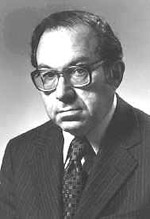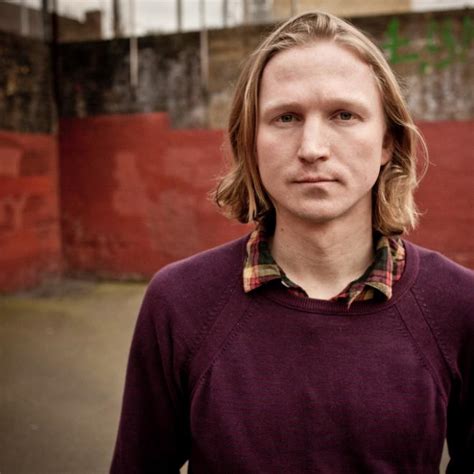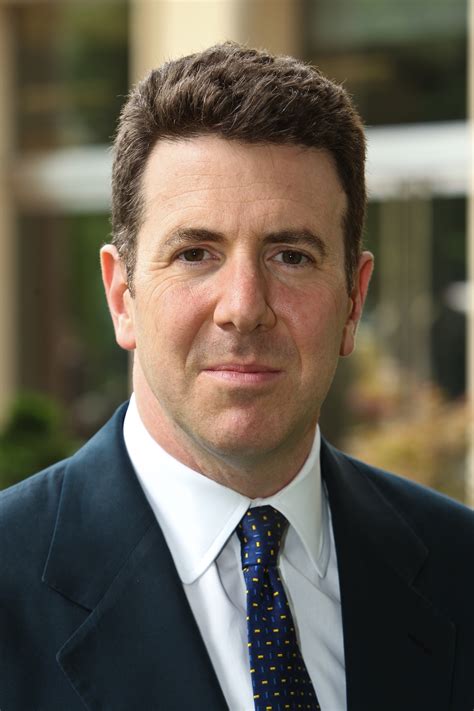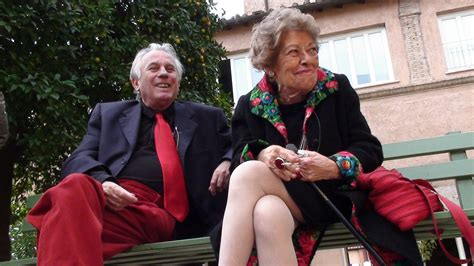Top 445 Bureaucracy Quotes & Sayings - Page 8
Explore popular Bureaucracy quotes.
Last updated on April 20, 2025.
The State which would provide everything, absorbing everything into itself, would ultimately become a mere bureaucracy incapable of guaranteeing the very thing which the suffering person—every person—needs: namely, loving personal concern. We do not need a State which regulates and controls everything, but a State which, in accordance with the principle of subsidiarity, generously acknowledges and supports initiatives arising from the different social forces and combines spontaneity with closeness to those in need. The Church is one of those living forces.
Whether the mask is labeled fascism, democracy, or dictatorship of the proletariat, our great adversary remains the apparatus—the bureaucracy, the police, the military. Not the one facing us across the frontier of the battle lines, which is not so much our enemy as our brothers' enemy, but the one that calls itself our protector and makes us its slaves. No matter what the circumstances, the worst betrayal will always be to subordinate ourselves to this apparatus and to trample underfoot, in its service, all human values in ourselves and in others.
The educational system in the US was a highly predictable victim of the neoliberal reaction, guided by the maxim of "private affluence and public squalor." Funding for public education has sharply declined. As higher education is driven to a business model in accord with neoliberal doctrine, administrative bureaucracy has sharply increased at the expense of faculty and students. Cost-cutting leads to hyper-exploitation of the more vulnerable, creating a new precariat of graduate students and adjuncts surviving on a bare pittance, replacing tenured faculty.
We are for aiding our allies by sharing of our material blessings with those nations which share in our fundamental beliefs, but we're against doling out money government to government, creating bureaucracy, if not socialism, all over the world. We set out to help 19 countries. We're helping 107. We've spent 146 billion dollars. With that money, we bought a 2 million dollar yacht for Haile Selassie. We bought dress suits for Greek undertakers, extra wives for Kenya[n] government officials. We bought a thousand TV sets for a place where they have no electricity.
All companies have a culture, some companies have discipline, but few companies have a culture of discipline. When you have disciplined people, you don't need hierarchy. When you have disciplined thought, you don't need bureaucracy. When you have disciplined action, you don' t need excessive controls. When you combine a culture of discipline with an ethic of entrepreneurship, you get the magical alchemy of great performance.
What do intellectuals and opinion makers get from big government? An increasing number of cushy jobs in the bureaucracy, or in the government-subsidized sector, staffing the welfare regulatory state, and apologizing for its policies, as well as propagandizing for them among the public. To put it bluntly, intellectuals, theorists, pundits, media elites, etc. get to live a life which they could not attain on the free market, but which they can gain at taxpayer expense.
As the Nazi regime developed over the years, the whole structure of decision-making was changed. At first there were laws. Then there were decrees implementing laws. Then a law was made saying, ‘There shall be no laws.’ Then there were orders and directives that were written down, but still published in ministerial gazettes. Then there was government by announcement; orders appeared in newspapers. Then there were the quiet orders, the orders that were not published, that were within the bureaucracy, that were oral. And finally, there were no orders at all. Everybody knew what he had to do.
[Mikhail Bakunin] expectations were generally confirmed, including his prediction that some would seek to gain state power on the backs of popular revolution, then constructing a "Red bureaucracy" that would be one of the worst tyrannies in history, while others would recognize that power lies elsewhere and would serve as its apologists, becoming mystifies, "disablers," and managers while demanding the right to function in "technocratic isolation," in World Bank lingo.
We have got to accept Big Government for the duration-for neither an offensive nor a defensive war can be waged, given our present government skills, except through the instrument of a totalitarian bureaucracy within our shores. … And if they deem Soviet power a menace to our freedom (as I happen to), they will have to support large armies and air forces, atomic energy, central intelligence, war production boards, and the attendant centralization of power in Washington-even with Truman at the reins of it all.
Delhi is a very maligned city, and deservedly so. Yet there's something about it. It's a secret city, it doesn't hang out its wares. It's like a very deep river. Floating right up on top are the institutions of contemporary power: government, politics, media, and then there's the bureaucracy, the diplomatic missions. But it's also the city of intellectual debate, of protest, it's the city where people from all over the country converge to express their anger. And then, underneath all that, there's this crumbling, ancient city, a confluence of so much history.
The great successes of the modern environmental movement in the '60s and '70s had laid the seeds of their failure in the early years of the 21st Century. They had built institutions filled with lawyers and scientists well suited to lobby policy makers who basically shared their world view. This worked well when liberals controlled the Congress and much of the federal bureaucracy, and when the politics of the time were more supportive of active government efforts to regulate the economy and clean up the environment.
The clearer and deeper the public opinion of the world, in the first instance the opinion of the working masses, will understand the contradictions and the difficulties of the socialist development of an isolated country, the higher will it appreciate the results achieved. The less it identifies the fundamental methods of Socialism with the zigzags and errors of the Soviet bureaucracy, the less will be the danger that, by the inevitable revelation of these errors and of their consequences, the authority, not only of the present ruling group, but of the workers' State itself, may decline.
After that, we had a short conversation about how your body can sometimes seem totally separate. She said her body can feel like a distant bureaucracy controlled by telegrams from her brain, and I said my body is sometimes like that of Mario Mario, being controlled with a Nintendo joypad. Mario's surname is Mario.
I imagine a school system that recognizes learning is natural, that a love of learning is normal, and that real learning is passionate learning. A school curriculum that values questions above answers...creativity above fact regurgitation...individuality above conformity.. and excellence above standardized performance..... And we must reject all notions of 'reform' that serve up more of the same: more testing, more 'standards', more uniformity, more conformity, more bureaucracy.
Without general elections, without unrestricted freedom of press and assembly, without a free struggle of opinion, life dies out in every public institution, becomes a mere semblance of life, in which only the bureaucracy remains as the active element. Public life gradually falls asleep, a few dozen party leaders of inexhaustible energy and boundless experience direct and rule. Such conditions must inevitably cause a brutalization of public life: attempted assassinations, shootings of hostages, etc.
We've seen a shift where people were often initially reluctant to call things terrorism until they knew for sure. And now they start out assuming it's terrorism and then work backwards and say it may or may not have been terrorism. And it does matter tremendously because of the resources involved. If it's a crime that's seen as a disturbed individual, then local police will handle it. If it's a crime that's seen as someone who might be linked to an international terrorist group, you get the vast federal U.S. national security bureaucracy as well as tremendous political attention.
I have already spoken to three US Presidents. They come and go, but politics stay the same at all times. Do you know why? Because of the powerful bureaucracy. When a person is elected, they may have some ideas. Then people with briefcases arrive, well dressed, wearing dark suits, just like mine, except for the red tie, since they wear black or dark blue ones. These people start explaining how things are done. And instantly, everything changes. This is what happens with every administration.
Trump conducts meetings and actually tries to get something done rather than just have the meeting and rather than just announce a framework and rather than just touch on bullet points or outline points and to speak in large terms about what our four-year objectives are. My guess is that Trump gets in there, rolls up the sleeves, and starts talking about actual work that's going to be done, things that he wants to do, things he believes the American people elected him to do. And I think it probably is a stark contrast for people who basically work in a bureaucracy.
Communication media enabled collective action on new scales, at new rates, among new groups of people, multiplied the power available to civilizations and enabled new forms of social interaction. The alphabet enabled empire and monotheism, the printing press enabled science and revolution, the telephone enabled bureaucracy and globalization, the internet enabled virtual communities and electronic markets, the mobile telephone enabled smart mobs and tribes of info-nomads.
Even CEOs police their own bureaucracy. Trump is not that. He does have more in common with these guys than most elected officials would have, particularly in the Obama administration. Obama didn't have anybody that'd ever worked in the private sector. All they had is a bunch of theoreticians who thought they were smarter than everybody that runs businesses in the private sector. And who knows what kind of pressure was brought to bear. Remember, Obama's agenda was one that was to be governed against the will of the people.
There's nothing wrong with the Democratic Party that talks more about - and more loudly about - jobs, and cutting red tape, and bureaucracy, making it easier for entrepreneurs to start jobs, making it easier for businesses to grow and create more jobs. That has historically been the wheelhouse of the Democratic Party.
I don't know if Trump was readily prepared for having an entire embedded bureaucracy trying to undermine him. But he's gonna be able to deal with it because he's faced these kinds of things in his life before. And I think that he is so committed to what he thinks will make this country great, so committed to the things he believes will reverse the fortunes of this country, no way is he going to be rendered depressed and despondent and give up the agenda. He's tougher than that. He's certainly more committed than that.
This thought-provoking novel portrays the absurdity of our overbearing government bureaucracy with a story that is entertaining and fast-paced. The Taxman Cometh will become part of our national dialogue about taxes and freedom. And it’s funny as hell. Author Jim Greenfield is a cross between Ayn Rand and Monty Python. If enough people read this hilarious ‘man versus state’ book, the IRS will be put out of business, which is okay with me.
It's my greatest success. Women did not vote in Italy until 1946. A good friend and I put together a group of women to protest this. I was very young, just a girl. We went to the Viminale [home of the Ministry of the Interior] and spoke to the chair of the ministry board. Thanks to our initiative, we got the bureaucracy rolling on giving women the right to vote. I have to thank my father for this. He was in Geneva at the League of Nations, and women voted there. He thought it was absurd that women didn't vote in his country yet.





















